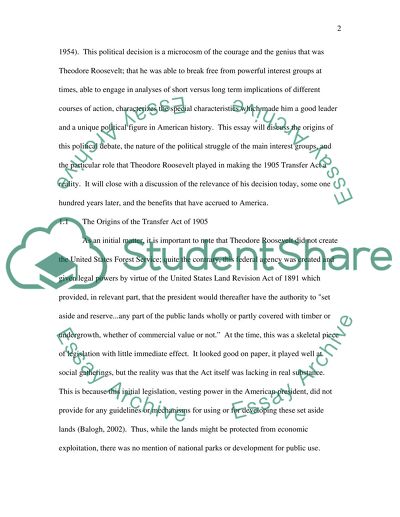Cite this document
(“Theodore Roosevelt Essay Example | Topics and Well Written Essays - 2000 words”, n.d.)
Theodore Roosevelt Essay Example | Topics and Well Written Essays - 2000 words. Retrieved from https://studentshare.org/people/1506727-president-evaluation-decision-analysis
Theodore Roosevelt Essay Example | Topics and Well Written Essays - 2000 words. Retrieved from https://studentshare.org/people/1506727-president-evaluation-decision-analysis
(Theodore Roosevelt Essay Example | Topics and Well Written Essays - 2000 Words)
Theodore Roosevelt Essay Example | Topics and Well Written Essays - 2000 Words. https://studentshare.org/people/1506727-president-evaluation-decision-analysis.
Theodore Roosevelt Essay Example | Topics and Well Written Essays - 2000 Words. https://studentshare.org/people/1506727-president-evaluation-decision-analysis.
“Theodore Roosevelt Essay Example | Topics and Well Written Essays - 2000 Words”, n.d. https://studentshare.org/people/1506727-president-evaluation-decision-analysis.


